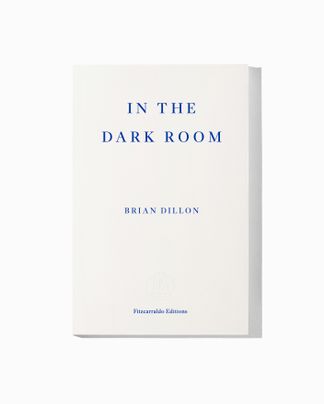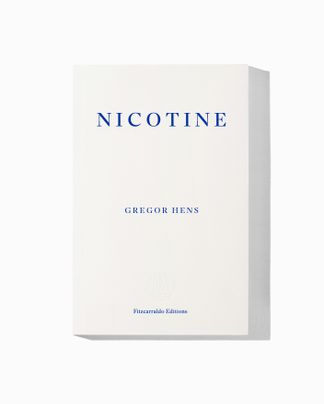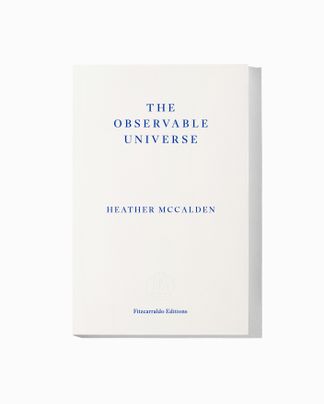Plagued by insomnia for twenty years, Marie Darrieussecq turns her attention to the causes, implications and consequences of sleeplessness: a nocturnal suffering that culminates at 4 a.m. and then defines the next day. In Sleepless, she recounts her own experiences alongside those of fellow insomniacs, mostly writers – ‘as if writing were not sleeping’ – Ovid, Marcel Proust, Virginia Woolf, Marguerite Duras, Franz Kafka, Georges Perec and others. With her inimitable humour, she describes her dealings with a somnologist and her attempts to find a remedy – trying sleeping pills, cannabis, alcohol, bedtime rituals, acupuncture, yoga, hypnosis, psychoanalysis, a gravity blanket and a range of sleep-aid devices. Darrieussecq considers bedrooms, beds, clinophilia (‘the tendency to remain in a prone position without sleeping for prolonged periods of time’), her need to be alone in bed, those without beds, the homeless, refugees, trauma and capitalism’s role in sleeplessness, our constant wakefulness online, the forest as a hypnagogic zone and how our relationship with animals is connected to our sleep, or lack of it. Ranging between autobiography, clinical observation and criticism, Sleepless is a graceful, inventive meditation by one of the most daring, inventive novelists writing today.

Sleepless
Translated by Penny Hueston
French paperback with flaps, 272 pages
Published 16 August 2023
Sleepless
Translated by Penny Hueston
I lost sleep. I retraced my steps but sleep wasn’t following me. It had broken free and I was wandering through the night without it.
What wild beast has devoured my sleep? I’m hunting it down in the forest. I’ve got leads. The killer left clues.
I used to be able to sleep. I thought I had a grip on my sleep. I thought it followed me like my shadow – that it was my shadow. Sleep, I thought, is the other half of us, our safe haven, our escape route. It is us, in our absence.
Not sleeping: wandering around without a shadow.
In January 2017, I began writing a column on insomnia for a weekly magazine. I even sent the publisher a plan for umpteen columns on the subject: one of the editors there jokingly called it ‘the thousand and one nights of insomnia’. In the end I stitched together a column a month over two years, like a Fair Isle knitting pattern, which I shortened, lengthened, and often improvised.
For this book I went back to the beginning. The beginning of no-sleep. In my columns I had tried to weave my insomnia into what was going on in the news, but insomnia has its own news cycle. It occurs absolutely in the present. Only sleepers are kept awake by what happened yesterday or what will happen tomorrow. In ‘the brutality of no-sleep’, said Marguerite Duras, insomnia has no ‘theme’. Nothing disrupts the insomniac. No event. No spark of daylight illuminates the insomniac’s relationship with the night. Nothing prevents the insomniac from not sleeping.
I’ve got plenty to read during my unending insomnia. Every book I open talks about insomnia. Gide! Pavese! Plath! Sontag! Kafka! Dostoevsky! Darwish! Murakami! Césaire! Borges! U Tam’si! And so many other champions of fatigue. On every continent, that’s all literature talks about. As if writing were not sleeping. As if literature were an anagram of lie in torture, literal tear, little terror…
In literature, the patron saint of insomnia is Kafka. If I could pray, I’d pray to Kafka; his whole oeuvre is one long night of insomnia haunted by ghosts: ‘Dread of night. Dread of not-night.’ The proprietor of insomnia is the philosopher Cioran: ‘Those who have not personally endured this tragedy will not have the slightest understanding of it. Insomnia is the most profound experience one can have in life.’ And the champion of insomnia is Proust, whose work opens with literature’s most famous failed bedtime: ‘For a long time I used to go to bed early. Sometimes, when I had put out my candle, my eyes would close so quickly that I had not even time to say to myself: “I’m falling asleep.” And half an hour later the thought that it was time to go to sleep would awaken me.’
And yet surely it doesn’t just affect writers? In his story ‘A Clean, Well-Lighted Place’, Hemingway contrasts the waiter who is in a hurry to get home to bed with the other waiter, still dawdling beneath the electric light, polishing the counter in the café. ‘He would lie in bed and finally, towards dawn, he would fall asleep. After all, he says to himself, it’s probably only insomnia. Many must have it.’
I’m enthralled when I hear accounts from sleepers. How do you sleep? becomes my How do you do? One morning in Montreal, wiped out by jetlag, I met my publisher Paul Otchakovsky-Laurens, who was bright-eyed and bushy-tailed, at the stand at the book fair. He was marvelling at the fresh snow, which he had photographed at five in the morning for his wife in Paris. ‘So you didn’t sleep?’ I asked him, somewhat hopefully. He’d woken, glimpsed the beauty of the snowflakes and then gone straight back to sleep. ‘When it comes to sleep,’ he told me, ‘I’ve got the knack.’
What exactly does this ‘knack’ consist of?
Hidden in our attics, crouching beneath our mattresses, sliding between the joists of time, where does insomnia come from? From ghosts? From the brain? From a troubled soul? From the world?
I had to stop. I had to lay my insomnia to rest. Rake over it one last time and then poof, perhaps I’d be able to sleep. This book is the result of twenty years of panic, and of journeys through books and through my nights.
(…)
The Arts Desk Books of the Year 2023
‘Marie Darrieussecq invites us on an extended patrol of the corridors of Hotel Insomnia in the company of the ghosts of the famous sleep-deprived, then turns to the story of her own intimate tussle with sleep that will not come. Amid the torrent of publications in the new sleep science, this is the only book I know that concedes to sleep its proper majesty and its own dark poetry.’
— J. M. Coetzee
‘Splendidly translated by Penny Hueston, this is a brilliantly creative and playful meditation on the disturbing reality of insomnia, one that weaves together Darrieussecq’s own experiences with quotations, images and biographical anecdotes from other sleep-deprived writers.’
— P. D. Smith, Guardian
‘Sleepless is a peculiar book, though it captures the skittering, jittery mood of an insomniac’s “white forgetfulness”, of what it’s like to be simultaneously over-stimulated and over-stretched.’
— Roger Lewis, Telegraph
‘On the page [Sleepless is] fragmentary, footnoted and studded with photos and illustrations. It’s panoramic in its survey of insomniac literature, and also softly intimate where it touches on the author’s own life. In its range and genre it’s unpindownable. Darrieussecq is one of the most prolific and distinguished living writers in France with a truly impressive body of work. All her familiar acuity, humour, humility and intensity are evident in Sleepless.’
— Samantha Harvey, Guardian
‘[Darrieussecq] shows convincingly that the socioeconomic organization of twenty-first-century life conspires to rob us of sleep…. It is that, in the eyes of capitalism, sleep is a “structural attention deficit” that impedes “non-stop-connectivity” and the possibility of being open for value extraction and commodification twenty-four hours a day, seven days a week…. For her readers, whether they are insomniacs or not, Sleepless is a meditation on a condition that is more widespread than is generally acknowledged, and impinges, at least philosophically, even on those who do not have it.’
— Ryan Ruby, Times Literary Supplement
‘Darrieussecq is a prolific and much-lauded novelist, psychoanalyst, and translator; she has also, for a significant portion of her life, been hopelessly unable to sleep. Sleepless tells the story of this near-unrelenting affliction, a recount couched in prose that is, by turns, distractedly diaristic, a socio-political tract, grimly funny, and heartbreaking – all inflected by the dreamy logic of chronic wakefulness. It is the kind of book likely to keep a reader just as wide-eyed.’
— Jack Barron, The Arts Desk
‘Darrieussecq is exceptionally well-read and her prose is roving and referential. The effect is decadent and dexterous…. The narration is high-octane, zooming from big ideas to minute detail within a handful of words. And yet she makes it so easy, so pleasurable to be taken on this ride. The reading experience is exhilaratingly lucid.’
— Fiona Murphy, The Saturday Paper
‘[Darrieussecq] takes us through treatments (wine, pills), rituals (counting lovers) and other practices (burrowing, gravity blankets). As her investigation expands it pulls in psychiatry, sorcery, genocide, street lighting, first husbands, lobotomies, the despoliation of nature. Drawing on her journals, previously published works, travels, personal photographs and memories of the pandemic years, the result is itself a bit like a sleepless night: hypnagogic, discursive.’
— David Terrien, ArtReview
‘Bad sleepers do not necessarily make great writers, and vice versa, but in Sleepless, Darrieussecq shows she a is a great writer, one who is very much awake, and that maybe all those nocturnal hours were not lost after all; she has provided us with a luminous exploration of life after dark.’
— Joshua Rees, Buzz Magazine
‘[I]t’s a book about living with insomnia that contains within it the feeling and structure of insomnia itself. It’s a sleepless text, company and comfort for insomniacs, and instruction for those heading off to a good night’s sleep. It is ever-awake and ready for the exhausted and the good sleepers alike to pick up in the morning.’
— Rebecca Hussey, Words Without Borders
‘I was kept up – with rapt attention – by Fitzcarraldo’s translation of Marie Darrieussecq’s heady, labyrinthine, and restless exploration of insomnia. Sleepless is an allusive tissue of self-reflection, offering disquieting insights into a chronically wakeful world, covering the personal effects as well as the wider political consequences of a society that values – over anything else – incessant productiveness. Penny Hueston’s translation retains the verve and wit of the original, and even adds the lightest of English lilts. It does great justice to the Darrieussecq’s intricate and sensitive work.’
— Jack Barron, The Arts Desk Books of the Year
Marie Darrieussecq was born in Bayonne in 1969 and is recognized as one of the leading voices of contemporary French literature. Her first novel, Pig Tales, was translated into thirty-five languages. She has written more than twenty books. Text has published Tom Is Dead, All the Way, Men, Being Here: The Life of Paula Modersohn-Becker, Our Life in the Forest, The Baby and Crossed Lines. In 2013 Marie Darrieussecq was awarded the Prix Médicis and the Prix des Prix for her novel Men. She has written art criticism and journalism for a number of publications, including Libération and Charlie Hebdo, and is also a translator from English and has practised as a psychoanalyst. She lives in Paris.
Penny Hueston’s translations from French include novels by Emmanuelle Pagano (One Day I’ll Tell You Everything), Patrick Modiano (Little Jewel), Sarah Cohen-Scali (Max) and Raphaël Jerusalmy (Evacuation). She has translated six books by Marie Darrieussecq – All the Way, Men, Being Here: The Life of Paula Modersohn-Becker, Our Life in the Forest, The Baby, and Crossed Lines. She has been shortlisted for the JQ- Wingate Prize, the Scott Moncrieff Prize, and twice for the New South Wales Premier’s Translation Prize. She was the winner of the 2020 Medal for Excellence in Translation.




